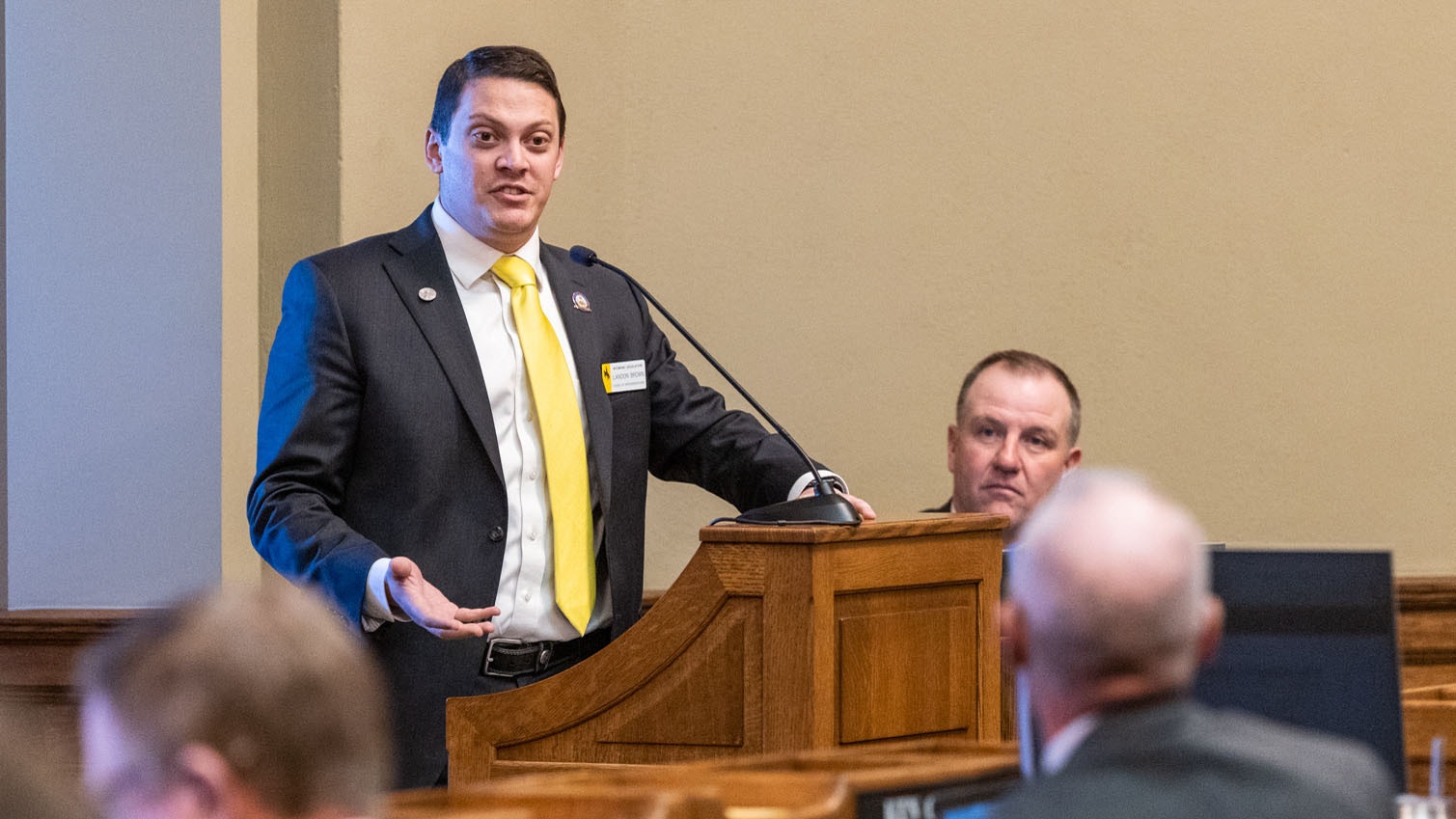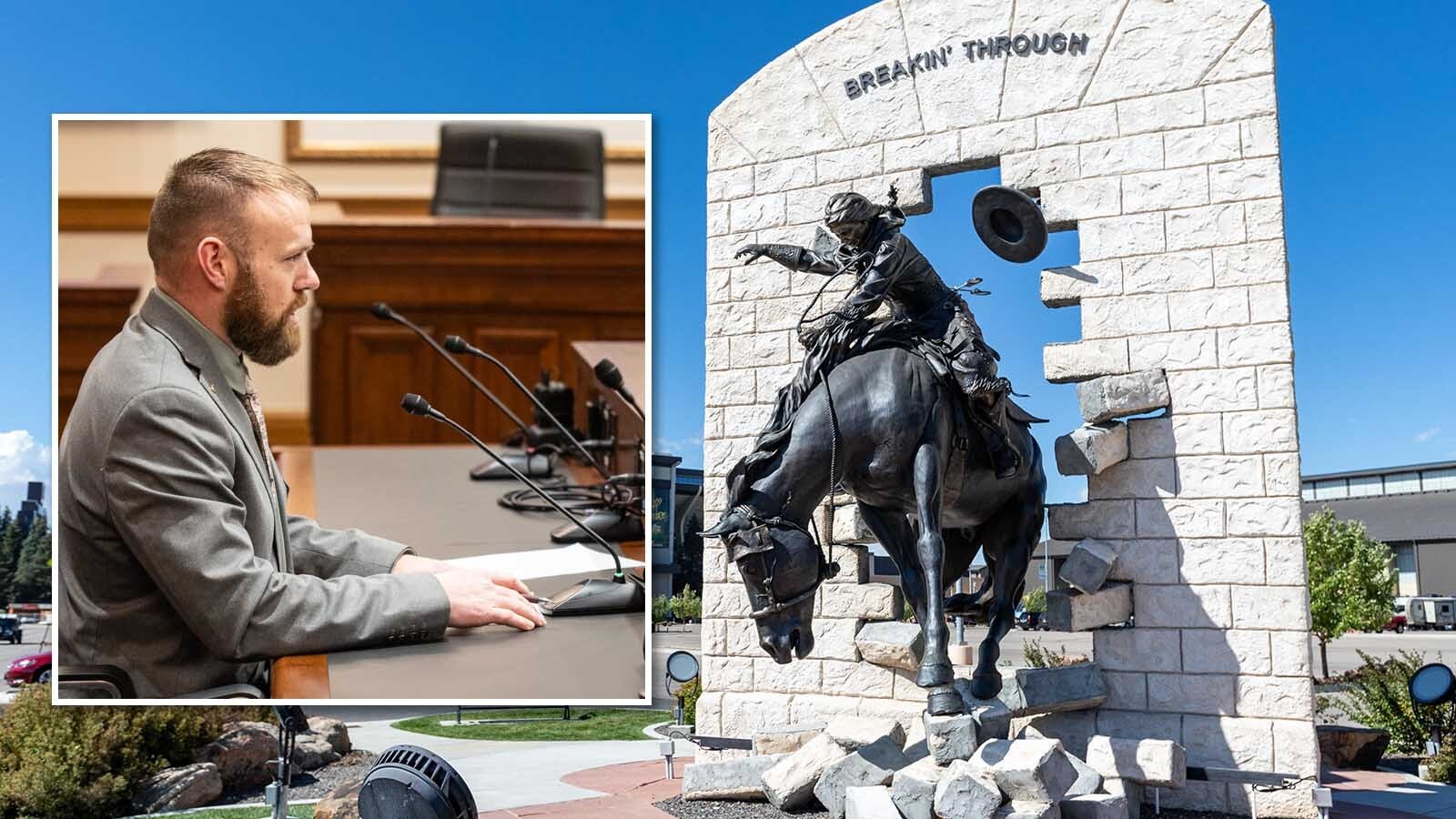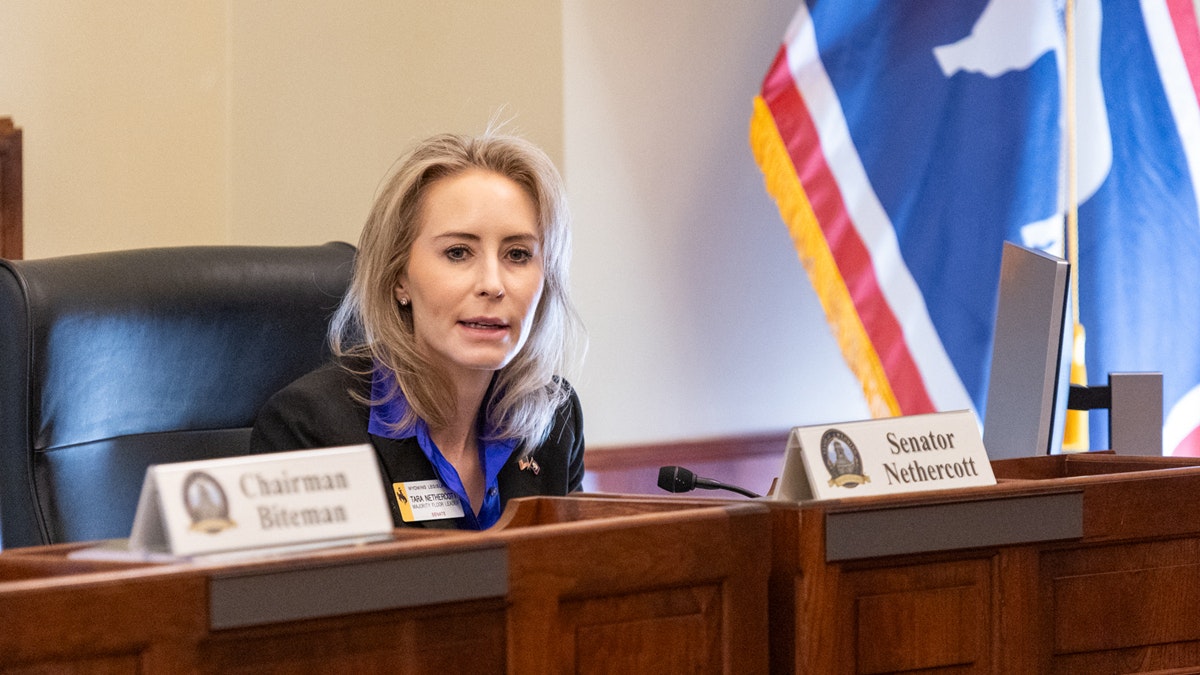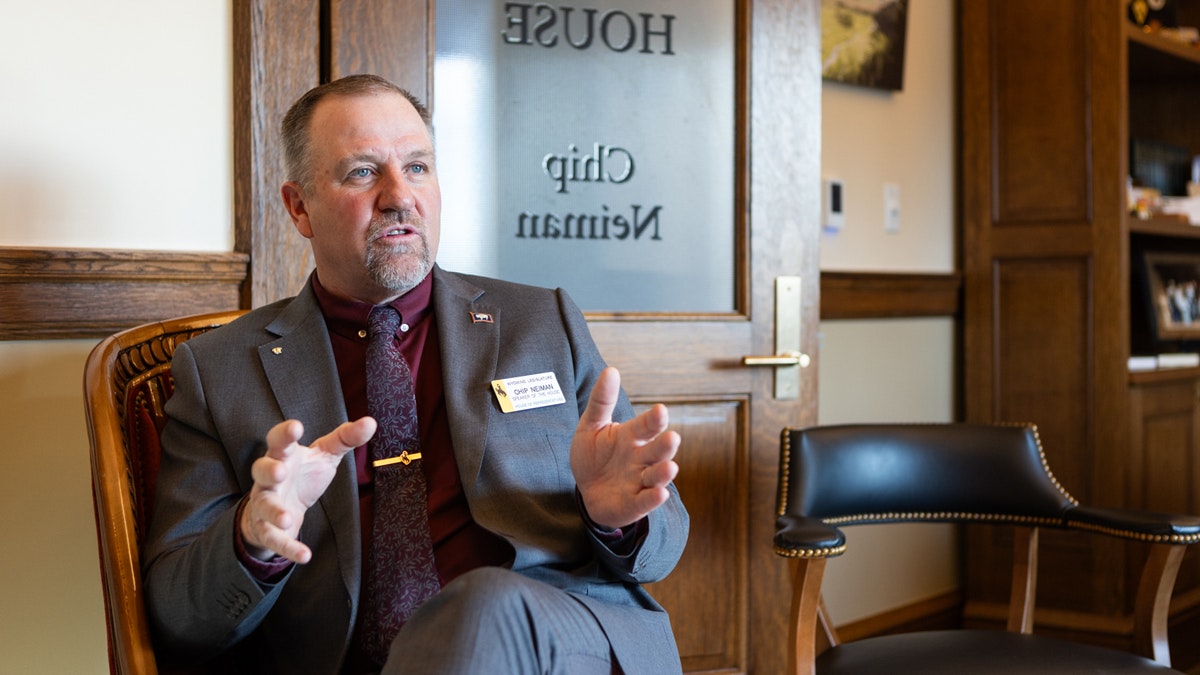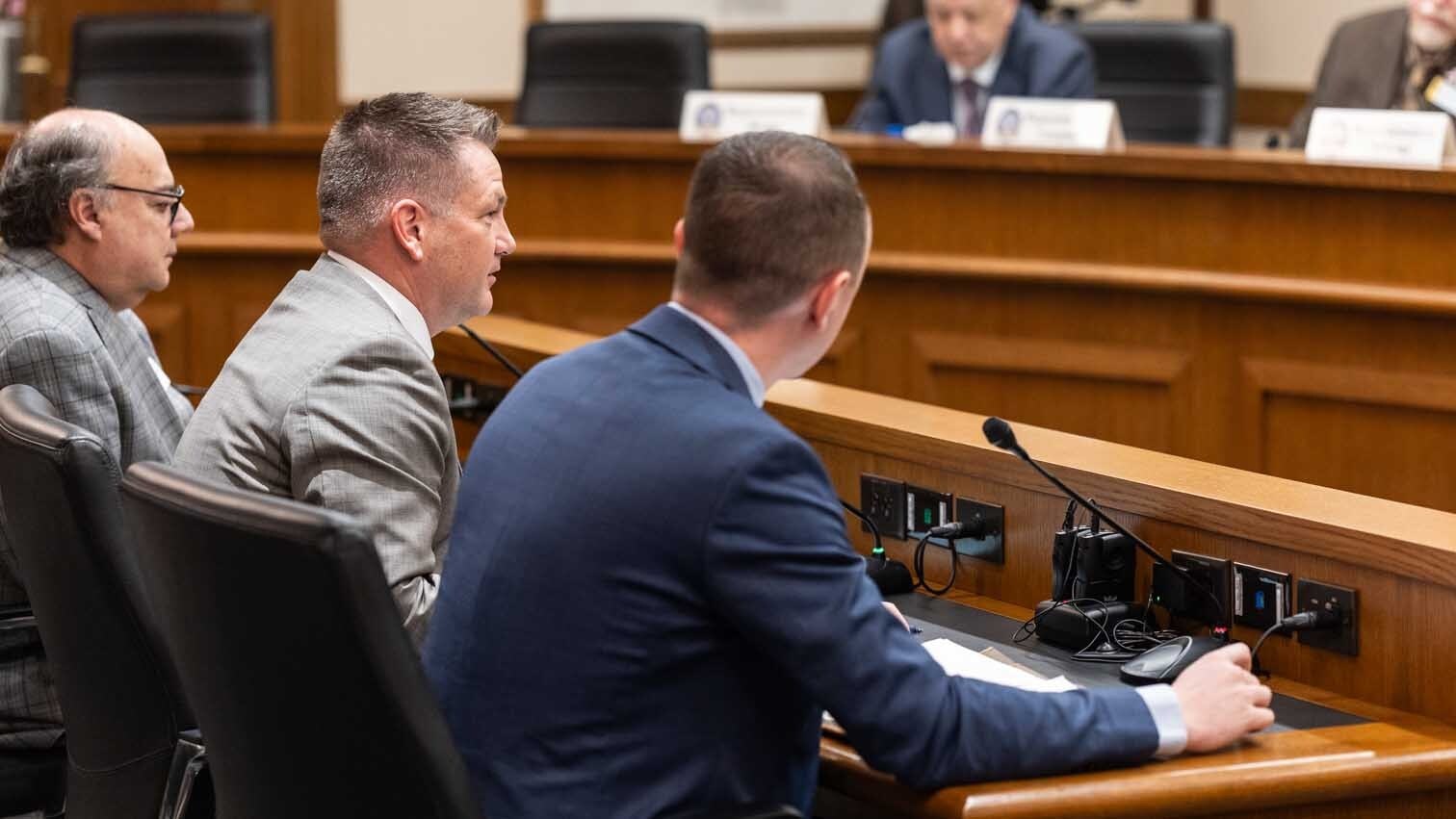The Wyoming House of Representatives passed an amendment Friday that moves all the proposed funding for suicide helpline services based in Wyoming to a non-permanent source.
Lawmakers made the change to House Bill 65, which proposed establishing 988 suicide prevention call centers in Wyoming and their related activities. It also would have created a $46 million trust to fund the program.
State Rep. Landon Brown, R-Cheyenne, proposed the amendment that removes the $46 million trust fund to pay for the program.
Instead, he said the call centers should be paid for from the state’s existing federally supported budget through the remainder of the budget cycle.
The amendment passed with a healthy majority.
Not Against The Bill
Eliminating the trust wasn’t a message against the 988 call centers, it was because Brown said he believed the large appropriation would’ve been a roadblock to passing the bill.
“The amendment allows the bill to pass with far more support than it would have without it,” Brown told Cowboy State Daily. “This bill still provides the appropriations needed for the next year and tells the department that when it makes its ask for funding in the future, we will fund it.”
It would be the responsibility of the Wyoming Department of Health to make future budget requests to maintain the program, he said.
“Whatever that number will be, we will hear from (that department),” Brown said. “And we will get to debate whether that’s what we want to spend on.”
Costs
People experiencing mental health crises in Wyoming, or any state, can receive help by dialing 988 to reach a suicide and crisis lifeline.
There are two suicide prevention call centers in Wyoming, located in Casper and Greybull, dedicated to providing suicide and crisis intervention. These 24/7 call centers each receive about 225 to 450 calls a month.
The two call centers were first established in 2020 with limited hours on a budget of $250,000.
In early July, they were upgraded to 24 hours a day, seven days a week. The upgrades were made available based on a two-year allocation of $2.1 million in American Rescue Plan Act money and $400,000 from the state’s general fund.
Rep. Steve Harshman, R-Casper, said if the $46 million isn’t saved in the call center trust, it will get spent on a different purpose.
“I think it’s so important that we don’t just put this as another line item to grow government and the Department of Health,” he said.

A Major Cut
The amendment is a major cut to the bill, which originally requested $46 million in trust to support the call centers permanently after ARPA money runs out in two years.
The trust fund would’ve meant the program would’ve used only the interest and revenues generated by that $46 million.
“I don’t think we need it,” said Rep. John Bear, R-Gillette. “We’ve got reserve accounts … we also have the rainy-day fund, all these different funds, which create great revenue streams.
“We can put the $40 million in any of those, create a good revenue stream.”
Same As Other Programs
Brown said it costs roughly $700,000 a year to run the two facilities.
With the change to HB 65, the amendment reverts the call center’s funding back to the state’s regular budget cycle of requesting money every two years.
Brown said he expects the total funding for the call centers to increase to a $1.5-$2 million biennial budget request, which he said he would support.
Although $250,000 has been provided to Wyoming from the federal government for the program, President Joe Biden’s administration has increased funding by $408 million for suicide call centers around the nation.
Wyoming has not been told how much of this it will receive.
Brown said he doesn’t believe “locking up” $46 million in funding is the correct way to approach continuing the program. He wants to see how effective the call centers are before considering a more permanent move.
“We need to see what the benefits are as we come forward,” he said.
Opposition And Support
Brown was able to recruit many of the most conservative members of the Legislature to support his amendment.
“I think the lifeline is one strategy of many strategies in a statewide suicide prevention plan,” Rep. Rachel Rodriguez-Williams, R-Cody, said.
She said she wants to see outcome data in the future to analyze programs that are working and those that are not.
Rep. Ken Chestek, D-Laramie, spoke against the amendment. He said the state can’t afford to let the call centers go away for periods of time as the public may forget that it exists.
“In fairness of that hotline, we need to make sure it’s there when someone needs it 10 years down the road,” Chestek said.
Rep. Clarence Styvar, R-Cheyenne, disagreed and said he believes 988 will become just as well-known as other emergency hotlines like 911.
Chestek said if it turns out the facilities aren’t effective, the trust fund could be easily dissolved.
Rep. Jon Conrad, R-Mountain View, said it will be extremely difficult to determine the direct impact of the call centers, voting against the amendment.
How Effective Are They?
Many conservative legislators expressed skepticism about the effectiveness of the call centers Friday and in earlier discussions while the bill was being considered before the House Revenue Committee.
Rep. Mike Yin, D-Jackson, agreed with Chestek and said now is the time for the state, flush with oil and gas revenue, to invest in programs like these.
He said if it turns out the program isn’t effective, the state will still have the money it put in trust.
“Let’s make sure we save the money instead of spending money that we didn’t have to,” he said.
Many suicides are driven by economic factors, and Rep. Liz Storer, D-Jackson, expressed concern that by the next bust cycle, the call centers may not be around for the many who lose their jobs.
Best Chance To Pass
Brown said it would have been a very close final vote on HB 65 if his amendment hadn’t been added, but now he believes it has a very strong chance of passing.
“The future for this program is to be fully funded and we don’t anticipate that not happening,” he said. “But we just saved the state $46 million by putting it in a standard budget and it makes it more transparent for the public.”
Rep. Bill Allemand, R-Midwest, said he was “elated” about the amendment.
During the House Revenue Committee discussion on 988 suicide prevention Wednesday, Allemand spoke against the bill.
Two days later, he told legislators they can brag to their constituents about the money they helped save by approving the amendment.
“If it works, every year they will get the money,” he said.
Harshman found fault with this logic, arguing that by cutting the program’s main funding method, that’s basically cutting the program.

